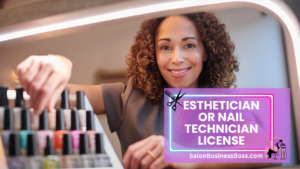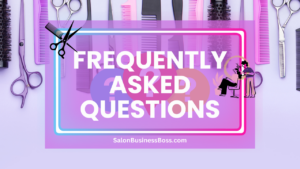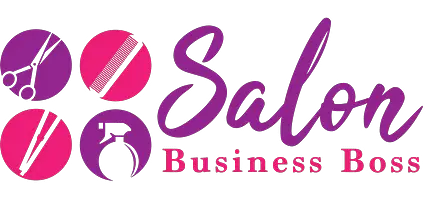Opening a beauty salon can be an exciting venture, offering the opportunity to help people look and feel their best. However, like any business, it comes with its fair share of rules and regulations. One crucial aspect of starting a beauty salon is understanding the licenses and permits you’ll need to operate legally and avoid any potential pitfalls.
To open a beauty salon, you’ll need licenses like a Business License, Salon Establishment License, Cosmetology Licenses, and possibly more based on your services and location. Compliance is key.
In this article, we’ll delve into the various licenses you’ll need to open a beauty salon, covering the essential requirements to get your dream salon up and running smoothly.
Business License: The Foundation

Before venturing into the world of beauty treatments and pampering, you must establish your salon as a legitimate business entity. To achieve this, you’ll need to obtain a business license or permit. This document provides you with the legal authorization to operate your salon within the confines of your city or state. The specific prerequisites and fees associated with obtaining a business license can fluctuate significantly, contingent upon your geographical location.
Initiating this process involves reaching out to your local government or city hall, where you’ll receive comprehensive guidance on the necessary steps and associated costs. In essence, this license bestows legitimacy upon your beauty salon, confirming its legal standing. Acquiring a business license is one of the primary measures you must undertake when embarking on your entrepreneurial journey. It ensures that you can conduct your beauty business within the legal framework of your locality, effectively preventing potential legal complications in the future.
Read more about: Hair Business Ideas: From Salons to Styling Ventures
Salon Establishment License: A Must-Have
With your fundamental business license secured, let’s shift our focus to the specialized licenses and permits essential for running a beauty salon. In the majority of regions, obtaining a Salon Establishment License is imperative for lawful operation. This license serves a pivotal role by affirming that your salon complies with stringent safety and sanitation criteria, particularly significant when offering beauty treatments.
The Salon Establishment License stands as a testament to your commitment to maintaining a safe and hygienic environment within your salon. It underscores the significance of adhering to established industry standards, emphasizing the wellbeing of your clients and staff. This critical license signifies your salon’s dedication to offering services that prioritize the health and safety of all involved.
To secure this license, you’ll need to engage with your local regulatory authorities, following their specific guidelines and requirements meticulously. While it may appear to be an additional bureaucratic step, the Salon Establishment License plays a crucial role in ensuring the trust and confidence of your clientele while safeguarding the reputation and integrity of your beauty salon.
Cosmetology License: For Your Staff
In the realm of beauty salons, the backbone comprises the staff—those skilled professionals responsible for an array of services, from hairstyling to nail care and skincare. To guarantee that your employees possess the qualifications needed to excel in these roles, obtaining cosmetology licenses is indispensable. These licenses are attained through rigorous training programs and completion of state board examinations.
Cosmetology licenses serve as concrete evidence of your staff’s expertise and competency in their respective roles. They signify that your team has undergone the necessary training to provide clients with safe and proficient services.
It is of paramount importance to ensure that all your staff members possess these licenses. Operating without them could lead to grave legal consequences, including potential fines and operational disruptions. This emphasizes the significance of diligent verification and adherence to the licensing requirements. By upholding these standards, your beauty salon not only complies with the law but also reinforces its commitment to delivering quality services while safeguarding the trust and well-being of your valued clientele.
Esthetician or Nail Technician License: Specialized Services

In the landscape of beauty salons, some establishments offer specialized services like facials, waxing, or nail treatments, which require specific expertise. To ensure that your salon operates within the boundaries of the law and prioritizes client safety, it’s imperative that your estheticians or nail technicians possess the relevant licenses.
These licenses validate the competence of your staff in delivering specialized services. They signify that your team has undergone appropriate training and acquired the necessary skills for providing these treatments safely and effectively.
It’s crucial to recognize that the prerequisites for these licenses can vary from state to state, and even among local jurisdictions. As a salon owner, you must conduct thorough research to ascertain the specific requirements applicable in your area. By doing so, you demonstrate your commitment to complying with local regulations and maintaining the highest standards of professionalism in your salon. This diligence not only keeps your business on the right side of the law but also ensures that your clients receive specialized services of the utmost quality and safety.
Read more about: Hair License Cost: Your Journey to Professional Styling
Massage Establishment License: For Massage Services
In certain beauty salons, massage therapy services are a welcomed addition to their offerings. If you intend to include massages in your salon’s menu, it’s highly probable that you’ll be required to obtain a Massage Establishment License. This particular license is instrumental in guaranteeing that your massage services align with the mandated safety and hygiene standards.
The Massage Establishment License is not just a formality; it signifies your commitment to maintaining a safe and hygienic environment within your salon, specifically for massage treatments. By obtaining this license, you acknowledge the importance of adhering to established industry regulations, prioritizing the well-being of both clients and staff.
To secure this license, you should proactively engage with the relevant authorities in your locality, diligently following their stipulated guidelines and fulfilling the necessary requirements. While it may seem like an additional administrative task, the Massage Establishment License plays a crucial role in ensuring that your salon operates in accordance with legal and safety standards. This commitment serves to instill trust and confidence in your clientele while upholding your salon’s reputation for professionalism and client safety.
Retail License: For Product Sales
In the realm of beauty salons, it’s a common practice to provide clients with the option to purchase hair care, skincare, and cosmetic products. If you plan to offer these retail sales within your salon, it’s essential to understand that you may need a retail license or permit, contingent upon the regulations in your locality.
The purpose of this license is straightforward: it grants you the legal authorization to sell beauty products within your salon. While the specifics of these licenses can vary, they serve as a formal recognition by local authorities that your salon complies with the necessary requirements for retail sales.
Overlooking the need for a retail license can lead to legal complications. It’s vital to conduct thorough research to ascertain the precise requirements dictated by your local regulations. By obtaining this license, you not only demonstrate your commitment to legal compliance but also ensure that your clients can confidently purchase beauty products from your salon, knowing that they are doing so from a reputable and lawful source.
Health and Safety Permits: Prioritizing Your Clients’ Well-being

In the world of beauty salons, safeguarding the well-being of your clients should forever be at the forefront of your concerns. To fulfill this commitment, you may be obligated to acquire health and safety permits. These permits typically entail inspections of your salon premises, ensuring that it aligns with prescribed cleanliness and safety standards.
These regulations aren’t mere formalities; they exist to guarantee the safety and comfort of your clients during their visits. Compliance is paramount, not only for their protection but also to circumvent possible legal entanglements.
These permits, often mandated by local authorities, signify your dedication to upholding stringent health and safety standards. It is vital to cooperate with inspectors and adhere to the stipulated requirements diligently. By doing so, you fortify the trust and confidence your clients place in your salon. It is a testament to your commitment to providing them with services in an environment that prioritizes their well-being. In essence, health and safety permits form an indispensable component of ensuring that your salon operates as a secure and reputable establishment within the beauty industry.
Read more about: Hair Products Startup Blueprint: From Concept to Sale
Signage Permit: Making Your Presence Known
When considering how to make your beauty salon known to potential customers, outdoor signage plays a crucial role. However, it’s important to recognize that, depending on your location, you may require a signage permit. These permits serve the purpose of overseeing the size, design, and positioning of your signage, all in accordance with local zoning laws, and to prevent obstruction of public spaces.
A signage permit is not just a formality; it ensures that your salon’s signage aligns with the rules and regulations established by your local authorities. These regulations are in place to maintain the visual aesthetics of the area, ensure safety, and prevent overcrowding with excessive signage.
To secure a signage permit, you must engage with the appropriate local authorities. It’s essential to adhere to their specific guidelines regarding the size, design, and placement of your salon’s signage. By doing so, you signify your commitment to being a responsible and compliant business in your community, while also helping potential clients locate your salon with ease. In essence, a signage permit is an essential aspect of making your salon’s presence known while adhering to local laws and regulations.
Music Licensing: Setting the Ambiance
In the world of beauty salons, the right background music often sets the tone for a soothing and pleasant ambiance, making the overall experience more enjoyable for clients. However, it’s imperative to recognize that playing copyrighted music without the appropriate licenses can result in legal complications. To circumvent such issues, it’s advisable to procure the requisite music licenses, enabling you to play songs legally within your salon.
Music licenses function as legal permissions, allowing you to use copyrighted music for specific purposes, such as creating a calming environment in your salon. Without these licenses, playing copyrighted songs in your establishment could potentially lead to copyright infringement claims, potentially resulting in fines or legal actions.
To navigate this aspect, it’s prudent to explore and obtain the necessary licenses through the relevant music licensing authorities. Doing so showcases your commitment to legal compliance and respecting intellectual property rights. By securing the required music licenses, you can continue to offer your clients a relaxing and enjoyable experience in your salon without the risk of legal entanglements. In essence, music licensing serves as a vital component in crafting the desired ambiance for your salon while adhering to legal and ethical standards.
Building and Zoning Permits: Location Matters

Long before you welcome your first client, it’s imperative to confirm that your chosen salon location aligns with the zoning regulations established by your local authorities. Achieving this often necessitates obtaining building and zoning permits, particularly if you intend to carry out substantial structural modifications to the property.
These permits exist to ensure that your salon’s location is not only legally suitable but also appropriate for the specific type of business you plan to operate. Zoning regulations can differ from place to place, and they determine the allowable uses of a property within different zones or areas.
Securing building and zoning permits is a pivotal step in the pre-launch phase of your salon. Engaging with the relevant local authorities and adhering to their guidelines is crucial. These permits offer assurance that your chosen location is indeed conducive to running a beauty salon, helping you avoid potential issues down the road. In essence, building and zoning permits play a fundamental role in ensuring that your salon’s physical site aligns seamlessly with your business intentions while staying within the boundaries of local regulations.
Read more about: Hair Salon Advertising Ideas: Tangled in Innovative Promotion
Insurance: Protecting Your Business
Though it may not fall under the category of licenses, securing the appropriate insurance is an essential facet of any beauty salon’s operations. It serves as a protective shield for your business, shielding it from potential legal disputes and claims that may arise.
One form of insurance to contemplate is general liability insurance. This insurance coverage acts as a financial safeguard against potential lawsuits and claims. It shields your salon from bearing the full brunt of legal expenses and financial settlements in case of incidents like accidents, injuries, or property damage involving clients or third parties within your premises.
Worker’s compensation insurance is another consideration. In some regions, this insurance is a mandatory requirement. It offers protection to your employees by providing compensation in case of work-related injuries or illnesses.
While insurance may be an additional financial commitment, it serves as a vital risk management strategy. It ensures your salon’s financial stability and reputation remain intact should unforeseen circumstances arise. By thoughtfully selecting and maintaining the appropriate insurance coverage, you are taking proactive steps to protect your salon and maintain the well-being of your clients and staff. In essence, insurance acts as a safety net for your salon in the event of unforeseen challenges.
Conclusion
Opening a beauty salon is undoubtedly an exciting endeavor, but it’s essential to navigate the complex world of licensing and permits. Failure to obtain the necessary licenses and permits can lead to legal troubles, fines, and even the closure of your business. To ensure a smooth start and continued growth, research the specific requirements in your area, consult with local authorities, and always prioritize the safety and well-being of your clients. By doing so, you’ll be well on your way to making your beauty salon dreams a reality.
Frequently Asked Questions

Q: What are the typical licensing requirements for opening a beauty salon?
A: Beauty salons typically require a Business License, Salon Establishment License, and staff with Cosmetology or specialized licenses, depending on the services offered and location.
Q: Do I need different licenses for retail sales of beauty products in my salon?
A: Yes, you may require a separate Retail License or permit to legally sell beauty products in your salon, which varies based on local regulations.
Q: Are there federal regulations that beauty salons need to comply with in addition to state and local licenses?
A: Yes, in some cases, beauty salons need to adhere to federal regulations from agencies like the FDA or EPA, especially if they use specific chemicals or products. Ensure compliance to avoid issues.
To learn more on how to start you own salon checkout my startup documents here.
The information provided by SalonBusinessBoss.com (“The Site”) is for general informational purposes only. All information on the Site is provided in good faith, however, we make no representation or warranty of any kind, express or implied, regarding the accuracy, adequacy, validity, reliability, availability or completeness of any information on the Site. Under no circumstance shall we have any liability to you for any loss or damage of any kind incurred as a result of the use of the Site or Reliance on any information provided on the Site. Your use of the Site and your reliance on any information on the Site is solely at your own risk. This blog post is for educational purposes only and does not constitute legal advice. Please consult a legal expert to address your specific needs. Terms and Conditions. (https://salonbusinessboss.com/terms-conditions/)

About the author. Entrepreneur and Salon Business Fan.
Hi! I am Shawn and I am a happy individual who happens to be an entrepreneur. I have owned several types of businesses in my life from a coffee shop to an import and export business to an online review business plus a few more and now I create online salon business resources for those interested in starting new ventures. It’s demanding work but I love it. I do it for those passionate about their business and their goals. That’s why when I meet a salon business owner, I see myself. I know how hard the struggle is to retain clients, find good employees and keep the business growing all while trying to stay competitive.
That’s why I created Salon Business Boss: I want to help salon business owners like you build a thriving business that brings you endless joy and supports your ideal lifestyle.

